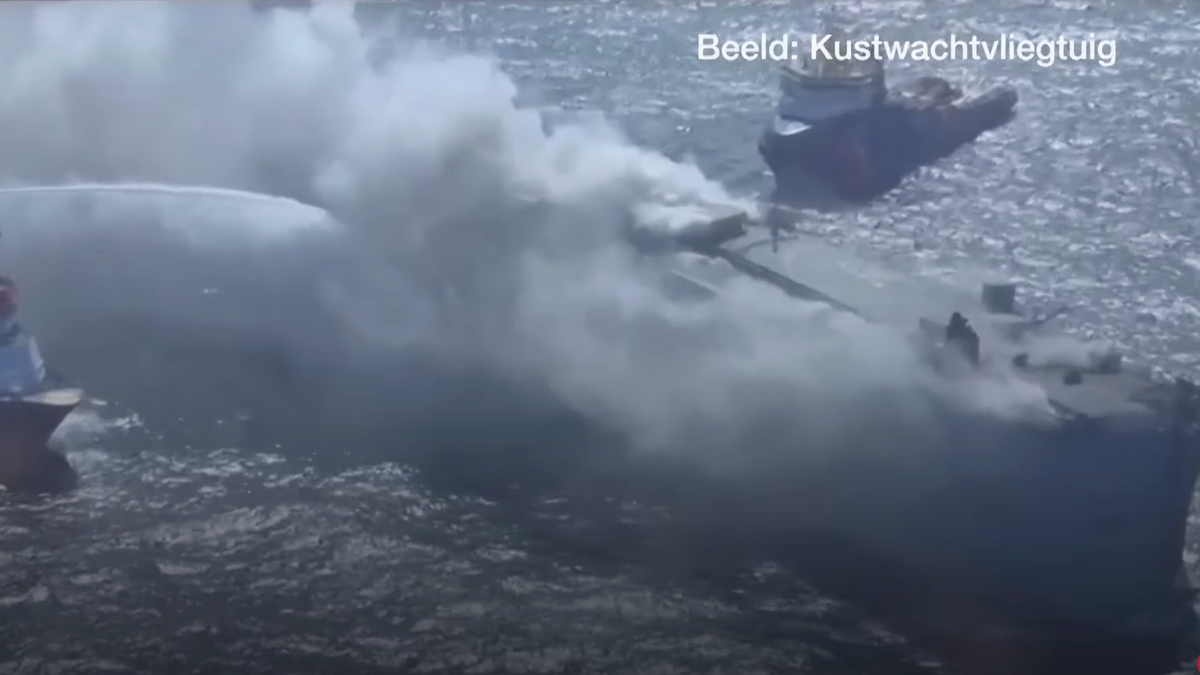Automakers Mini, BMW, and Mercedes-Benz confirmed they have hundreds of new cars among the 3,000 currently burning for a third day aboard the cargo ship Fremantle Highway in the North Sea.
Shipping industry expert Sal Mercogliano tweeted Friday morning that temperatures aboard the 635-foot Fermantle Highway have decreased sharply. With lower temperatures and less smoke, salvage crews are hopeful they’ll be able to stay aboard the Fremantle High and figure out what sparked the blaze that left one crew member dead and several more injured.
It’s currently unclear what started the fire, however some comms from first responders aboard the ship, as released by Dutch broadcaster RTL, indicate the fire could have been started by one of the nearly 500 electric vehicles (and not the previously reported 25) on board. That many EVs could pose a problem in fighting the blaze as EV fires are notoriously difficult to permanently extinguish. Automakers with models on board are now coming forward, according to Automotive News Europe:
There are several hundred BMW and Mini cars on board, as well as roughly 300 Mercedes-Benz vehicles, representatives for the automakers said.
Ford Motor, Stellantis, Renault and Nissan did not have any vehicles on the vessel, company spokespeople said. Toyota said it’s unlikely the automaker had cargo on board.
A Volkswagen spokesperson said the company was actively investigating but was unable to provide further information. Tesla did not respond to a request for comment.
Salvage workers and Dutch officials are really hoping the Fremantle Highway avoids the watery fate of the Felicity Ace, a car carrier that burned for a week before sinking 10,000 feet to the ocean floor off the coast of Portugal. The location of the Highway is even more problematic, according to the Associated Press:
The Fremantle Highway was sailing from the German port of Bremerhaven to Singapore when it caught fire about 27 kilometers (17 miles) north of the Dutch island of Ameland.
Its location is close to a chain of Dutch and German islands popular with tourists in the shallow Wadden Sea, a World Heritage-listed area described by UNESCO as “the largest unbroken system of intertidal sand and mud flats in the world” and “one of the most important areas for migratory birds in the world.”
The Japanese owner of the Panamanian-flagged Fremantle Highway is working with the Dutch to find the least bad end for the ship.

